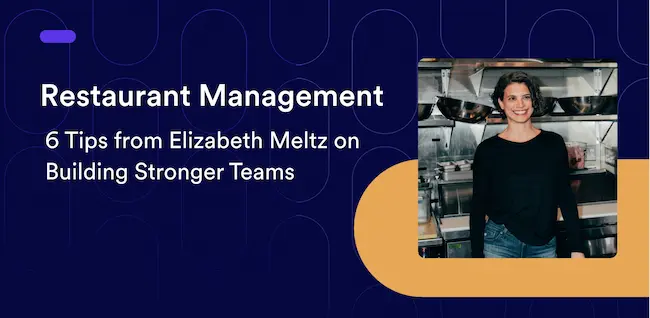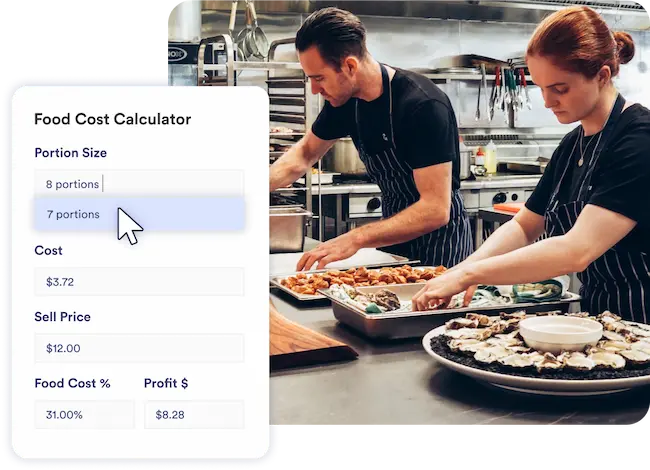In 2020, the world lost one of the greatest chefs of our time, someone who had an immeasurable influence on the culinary industry - Chef Floyd Cardoz. A mentor to meez founder Josh Sharkey and countless other chefs, Floyd's wife, Barkha Cardoz, has continued his legacy by launching a line of masalas in partnership with Burlap & Barrel. These FC Masalas are an iteration of spice blends she and Floyd developed together to make dinnertime easier.
Through her company, Cardoz Legacy, Barkha offers the same generous, chef-driven guidance to home cooks as Chef Floyd did in his lifetime. With accessible recipes and a growing line of blends, oils, and more, Barkha teaches cooks of all levels to love Indian cuisine.
Last year, we had the opportunity to sit down with Barkha to discuss Floyd's legacy and the future of Indian food in America. It was amazing to see her shining and embracing life and simultaneously carrying on Chef Floyd's name while building her own brand.
Starting from "zero" in the U.S.
Barkha entered the hospitality world in Mumbai, India, at The Institute of Hotel Management, where she received her culinary training and first met Floyd. Fast forward to 1988, at 24 years old, a young Barkha came to the United States with $500 in her pocket and the intention to visit her sister in New Jersey for a month. She extended the trip indefinitely.
"When I think about my first trip to New York, what were you thinking? How did you get on that bus and just go? I had no phone and no idea where I was going. Naive as hell. I have never been to New York City. But when you're 24, you are fearless and think you own the world. And that's the mindset I had."
Unfortunately, when you come from any part of the world to the United States, no matter what your education, life experiences, or work experience you have, it all goes down to zero when you arrive. For Barkha, that meant grabbing whatever job was available. Eventually, she ended up working in the garment center.
The stark contrast between her roots and the new reality prompted introspection, questioning her purpose in this unfamiliar land. However, Barkha and Floyd shared a mindset that transcended setbacks—they were here by choice, driven to prove their mettle. Despite the initial hardships, they recognized the unique opportunity for growth that the United States presented.
"It makes you stronger mentally to say, watch me. You realize this is the only country in the world that pushes you to the base and bottom, but it also provides you with space to grow. And that is what we took away from it: yes, we started late, but we got the opportunities. You get pushed in every direction, but it mentally makes you stronger, and I'm always grateful for that."

(Re)meeting Floyd in America
Amid the challenges of adapting to a new culture, Barkha encountered her fair share of mispronunciations and curious inquiries from strangers about her English proficiency. Yet, she tackled these hurdles with wit and determination. Fate intervened when familiar friends suggested reuniting with a schoolmate, Floyd, which she embraced to expand her social circle. Little did she know this casual meeting would evolve into something more.
Floyd and Barkha, initially good friends from cooking school in India, started hanging out with their culinary companions. Love began to simmer beneath the surface, and a couple of years later, they officially started dating. The duo navigated their relationship through Floyd's roles in Indian restaurants, including Taj Group's Ragga.
They tied the knot in 1991, commemorating the union with Hindu and Catholic ceremonies on the same day—a move to preempt any parental disputes over anniversary dates.
"When you come to this country, you are lonely. You are on your own. You realize that you gravitate towards your own, and that's when you realize it's not about religion, culture, or your upbringing. It's the familiarity. Floyd got me. He got where we grew up. So that friendship only got stronger. We were good friends forever. And from that came that love, attraction, and respect."
Finding work-life balance
Barkha and Floyd's home life was a delightful blend of culinary creativity, witty banter, and a pursuit of balance amid the chaotic restaurant world. Despite being a man of few words at home, Floyd found a harmonious partnership with Barkha, who humorously pointed out his silent nature with the quip, "Someone has to listen."
The couple prioritized maintaining a work-life equilibrium after the arrival of their son, Peter. At a young age, Peter would refuse to look at Floyd on his days off, questioning his absence. When Peter got used to having Floyd around, he was gone again. And so the cycle would continue.
"When you are passionate, you tend to forget that there is stuff around you. And we were very clear about the fact that we wanted a balance in life. I think Floyd signed onto that more after we had Peter. We decided that we both couldn't be in the business or we couldn't be gone. So, we balanced that out, and I missed it. I missed that aspect of life. I wanted to be in that business but couldn't because I had to be back home at a decent hour."

Sharing culinary feedback with Floyd
With a longing for the culinary world, Barkha channeled her creativity into discussions about food and restaurant affairs at home. Their conversations involved:
- Sharing insights into the daily challenges of running a kitchen.
- Dealing with people empathetically
- Navigating the intricate dance of professional and personal life.
In her role as a sounding board, Barkha offered an outsider's perspective, raising thoughtful questions and suggestions. Floyd, in his quiet way, absorbed and implemented her input, a dynamic that added a touch of humor to their relationship.
"If something was going on in his head or he wanted a different perspective from an outsider, we'd talk about it. Floyd would never come out and say, oh, you're right. He'd sit quietly with it, but then a few days later, you'd realize that he paid attention to what I had to say because it would happen if it was the right decision or thought process I put out."
Indian food every night
The culinary diversity extended beyond the professional domain into their home kitchen. Floyd, rooted in Goan cuisine's meat-centric tradition, willingly embraced Barkha's vegetarian preferences and diverse culinary influences.
The result was a fusion of flavors and culinary experiments, with Floyd skillfully incorporating ideas from Barkha's repertoire into his own. Their home became a lively blend of love, laughter, and exploration.
"Indian cuisine is so different in every home, in every part of the country that you go to. You will never get tired of Indian food if you travel throughout the country because every state has its ways of making the same vegetables and meat. It's just flavor profiles and techniques that change."
The future of Indian food in America
Gone are the days when Indian food in America was pigeonholed into greasy, spicy stereotypes. According to Barkha, Americans have finally graduated from a monotonous palate. No longer confined to "Mughlai" flavors or chicken tikka masala and palak paneer, they crave the authentic, the bold, and the flavorful. From street food chaat to the intricate offerings of South and North Indian cuisines, the American audience embraces the spice without fear.
Barkha anticipates the next five to seven years as a gastronomic rollercoaster. It's not just about the big cities; it's about small towns, mom-and-pop joints proudly serving unapologetic Indian fare. The key, she insists, is owning the culture, embracing it with confidence, and letting the flavors speak for themselves.
"They're cooking to let you see what Indian food is about, and that is the change. It's us being ready to own our culture, own our spaces, and be proud of it. Because when you do that, you come from a lot of authority, you come from a lot of confidence. There's no going back once that door opens."
Chef Floyd was an extraordinary technician, leader, and visionary with the courage to break new ground. His contribution to opening the door for chefs like Chintan Padya and others, who are now fearlessly crafting unapologetic Indian cuisine, is immeasurable.
While he may not be here to witness the dance of flavors and creativity, Chef Floyd Cardoz's impact is etched into the very fabric of Indian food in America as we know it.
"I just wish he was here. He would be dancing on the rooftops to say, finally, people get it. He did stuff that nobody even dreamed could be done. To see what's being taken and accepted today, like Chintan and Ronnie doing unapologetic Indian. He was ahead of his time. I'm so excited to see them just do that without thinking and doing it without fear or boundaries. And I wish Floyd was here to watch it."
Listen to the full episode of The meez Podcast featuring Barkha Cardoz

.png)

.webp)



